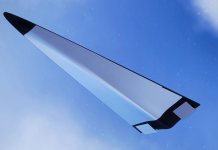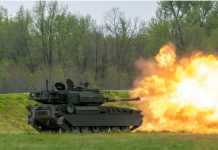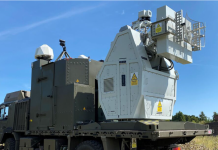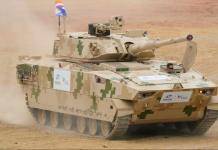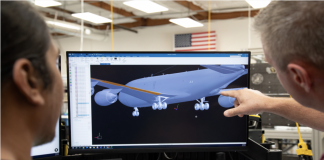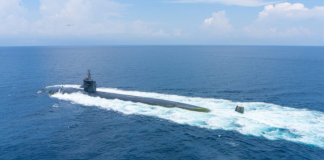Greece said Thursday it would shake up its defence forces to save money and sideline older weapons in favour of drones after lessons drawn from Ukraine.
Among the main changes in the radical overhaul is the creation of an anti-air and anti-drone defence dome covering the whole of Greece, according to government spokesman Pavlos Marinakis.
Defence Minister Nikos Dendias told a parliamentary defence committee that the military would introduce four different drone systems, merge army units and boost its cyber-warfare potential.
Greece has to deal with a “different reality” and “quickly” upgrade its forces for 21st-century requirements, he said.
“Every army unit will have anti-drone capabilities,” he said.
Spokesman Marinakis said the reform was the “greatest ever in the history of the Greek state in the field of national defence”.
Greece’s air force aims to have about 200 aircraft, mainly French-made Rafales and US-made F-16 Vipers and F-35s.
It will be “the strongest air force Greece has ever had”, Dendias said.
Greek frigates will be equipped with a Greek-made anti-drone system that has already seen action against Houthi rebels in the Red Sea, he added.
Older Greek warships and submarines are being modernised, and the navy is working with the United States on new Constellation-class frigates and the European Union on a new patrol corvette.
Greek naval shipyards stand to gain up to seven billion euros ($7.4 billion) in military orders over the next decade, he said.
– Air-defence dome –
For the touted air defence dome, Greece is considering reinforcing its current capabilities with new weapons, drones and radar systems to replace some obsolete equipment, according to a source close to the matter.
Nothing has yet been decided, but potential markets for the purchase of this equipment include Israel, France, Italy and Norway, the source told AFP on condition of anonymity.
The Greek financial website newmoney reported at the end of October that Greece was looking to buy air and missile defence systems on the Israeli market at a cost of two billion euros.
To rationalise the stationing of army units, the ministry will shut down over 130 camps by next year.
The minister said Greece had over 800 army camps, more than the United States, even though there were units in the border region with Turkey at just 30 percent capacity.
The ministry will also cut down on the number of military tribunals, which on average handle just five cases a year, while a civil court judge sees 25 cases a day, Dendias said.
The goal is to save two billion euros over 10 years, he said, with full details of the plan to be revealed after the Christmas break.
Greece spends around three percent of its annual output on defence, higher than most EU states, mainly because of long-running tension with historic rival Turkey.
Greece faces a potential threat from a foe “nine to 10 times” its size that has two satellites while Greece has none of its own, Dendias said of Turkey.
Greek armed forces had a 20-billion-euro shortfall during the country’s decade-long debt crisis, Dendias said.
Prime Minister Kyriakos Mitsotakis in 2021 announced a major military buildup in naval and air force equipment, and signed defensive agreements with Paris and Washington.
“We need to spend more, but we also need to be smarter about how we allocate our defence spending,” Mitsotakis said in July.



